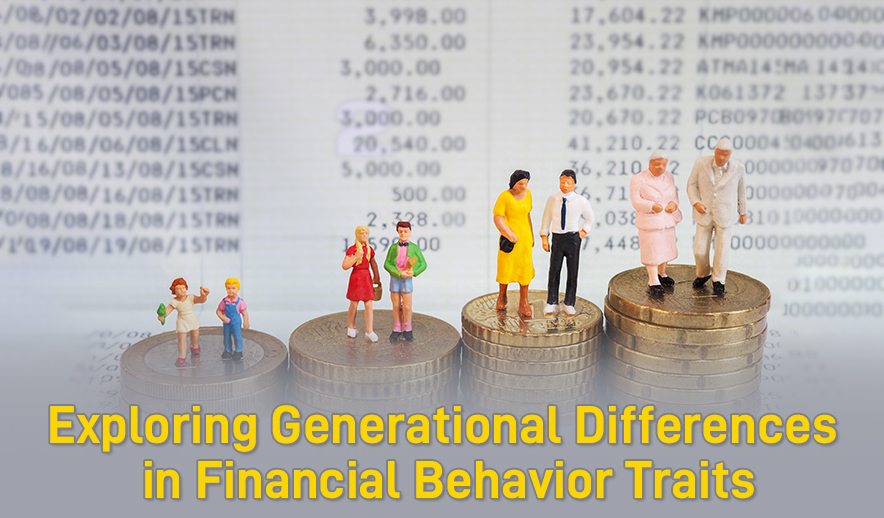
Exploring Generational Differences in Financial Behavior Traits

Financial behaviors can vary significantly across different generations due to diverse economic, social, and technological influences. Here’s an overview of the financial behaviors commonly associated with different generations:
1. Traditionalists (born 1928-1945):
Savings-Oriented: Traditionalists, having lived through economic hardships like the Great Depression and World War II, tend to be frugal and emphasize saving for the future.
Conservative Investors: They prefer low-risk investments such as bonds and traditional savings accounts.
Loyalty to Employers: Traditionalists often stayed with one employer throughout their entire careers, valuing job security and pension plans.
2. Baby Boomers (born 1946-1964):
Work Ethic: Baby Boomers are known for their strong work ethic and dedication to their careers, often valuing job stability and employer benefits.
Homeownership: This generation experienced a housing boom and tends to value homeownership as a long-term investment.
Savings for Retirement: Baby Boomers are focused on retirement planning and often rely on employer-sponsored retirement plans and Social Security.
3. Generation X (born 1965-1980):
Independent Savers: Gen Xers are known for their independence and self-reliance. They are pragmatic savers and tend to invest in retirement accounts and other long-term investments.
Tech Adoption: This generation saw the rise of technology and the internet, making them early adopters of online banking and investment platforms.
Balancing Act: Gen Xers often balance the financial responsibilities of raising children, saving for their own retirement, and sometimes caring for aging parents.
4. Millennials (born 1981-1996):
Student Debt Challenges: Many Millennials face significant student loan debt, impacting their ability to save and invest. They are also more likely to switch jobs and pursue multiple careers, valuing experiences over stability.
Digital Natives: Millennials are digital natives, comfortable using technology for various financial activities, including mobile banking, investing apps, and digital payment platforms.
Socially Conscious Investing: Millennials often prioritize socially responsible investing and are more inclined to support companies and causes aligned with their values.
5. Generation Z (born 1997-2012):
Financial Education: Gen Z has grown up in the digital age with access to vast information. They are proactive about financial education, learning about budgeting, investing, and entrepreneurship from online sources.
Entrepreneurial Spirit: Gen Zers are entrepreneurial and value financial independence. Many are open to gig economy jobs, freelancing, and starting their own businesses.
Digital Payment Preference: Like Millennials, Gen Z prefers digital payment methods and mobile banking apps for their financial transactions.
It’s important to note that these generalizations might not apply to every individual within a generation. Financial behaviors can be influenced by a wide range of factors, including cultural background, socioeconomic status, and individual life experiences. Additionally, as the world evolves, so do financial behaviors, making each generation’s approach to finance unique and constantly changing.



